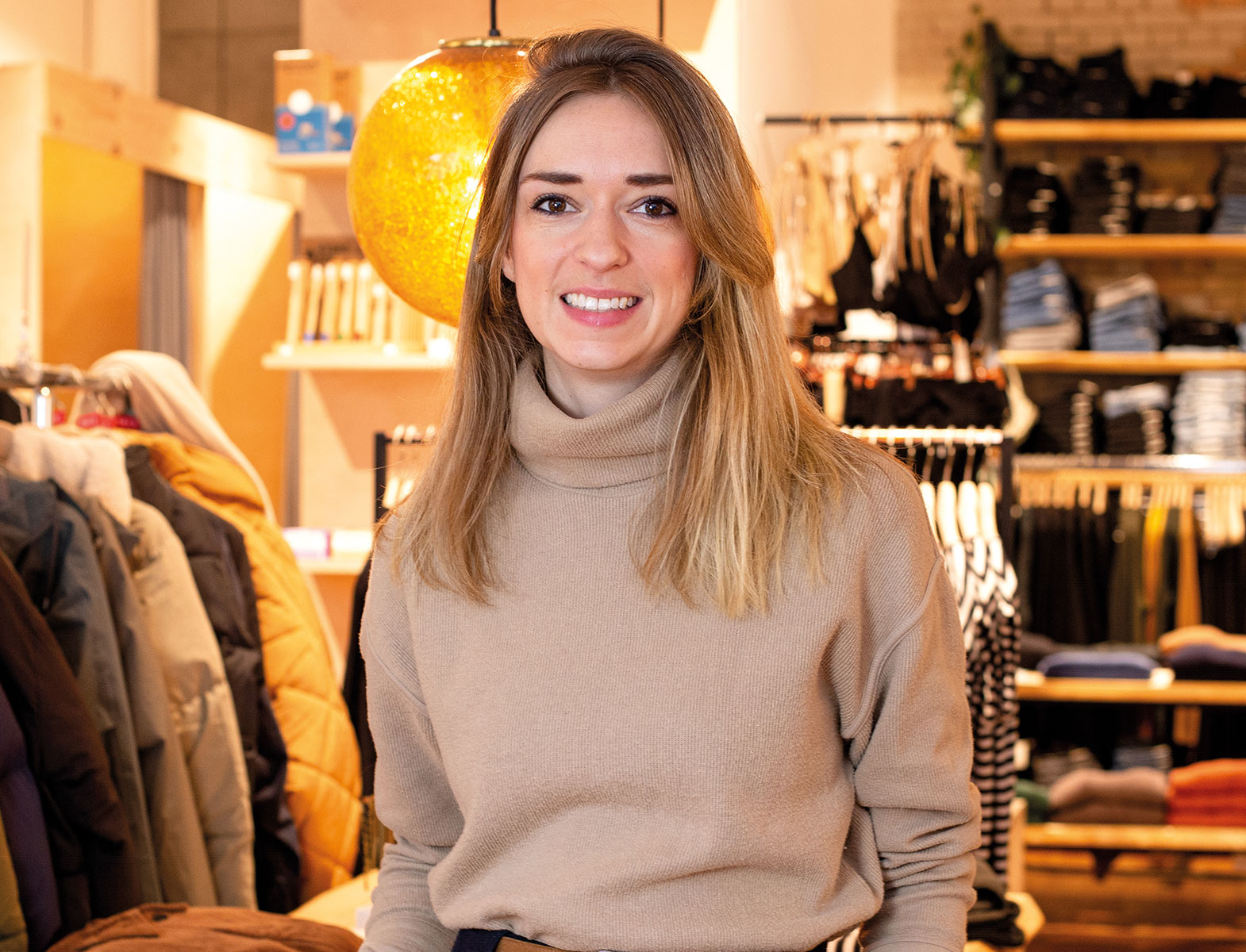Christina, you studied cultural sciences with a focus on sustainable textiles. In 2014 you founded your company LOVECO and in 2020 were awarded the title of Berlin Female Entrepreneur of the Year.
Why is it so important that sustainable textiles and their production attract more public attention?
Following the oil industry, the textile industry is the second largest polluter in the world. Additionally, 60 million people work in textile factories worldwide. These figures show just how much impact the sector can have. And this is precisely why it is so important for it to become more sustainable.
Many people are unaware of this issue because they don’t consume fashion like food and production is very far removed from our everyday lives. Awareness of sustainability is much greater when it comes to food compared to fashion. However, we want to change this.
Through my daily work I know that many brands, organizations, and manufacturers are pursuing different innovative approaches to improve the fashion industry for the environment, humans, and animals. My aim is spread awareness of these approaches and make sustainable clothing more accessible.
As a local entrepreneur, what role do you play when it comes to the global challenge of climate change?
There are several ways business owners can influence and prevent the advancement of climate change. Their daily decisions can contribute to the establishment of an alternative economic system.
The fact that the raw materials for clothing are hardly ever grown in Germany means that my purchases can also have a global impact. By ordering from a sustainable fashion brand that, for example, pays its textile workers a fair wage or supports organic cotton farming, I am supporting people in other parts of the world who are already experiencing the effects of climate change more strongly than we are here in Germany.
It is not only our responsibility to promote the sale of sustainable clothing but also raise consumers’ awareness about the conditions in the fashion industry. We do this in a number of ways, in our online shop, guide, online magazine, on social media, at film screenings, and discussion forums (before/after the pandemic). Of course, we also want to encourage other fashion companies, especially major ones, to do the same. However, we cannot forget that to truly make a difference and effect change, we require the support of policy makers.
What do you personally hope for the future of the textile industry?
I hope that the textile industry changes long term. Many companies advertise about their sustainability strategies, but ultimately these are short-term greenwashing campaigns to improve their image. This bothers me and I really hope that people will learn to see the bigger picture. We are all living on the same planet. What we do in one place will have consequences elsewhere.
The fashion industry needs to slow down and place greater value on sustainable materials, circular economy, and human rights. This is exactly why we joined forces with like-minded people to found the Fair Fashion Solidarity at the beginning of the pandemic. I hope that all players begin to assume responsibility throughout the entire value added chain.
The interview was conducted in March 2021.
Picture: Sarah Fitzbauer


